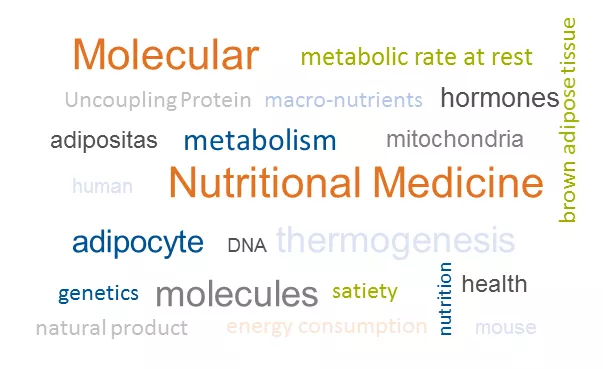Research at the TUM Chair of Molecular Nutritional Medicine infers the regulation of energy balance and the physiological mechanisms by which food and nutrition influence metabolism. The major focus of our research addresses the role of adipose tissues in the control of energy intake, energy storage, and energy expenditure. Key aspects are: - Nutritional and genetic adaptations: We study adipocyte cultures, organoids, and mouse models to leverage our understanding of how diet and genetic factors shape metabolism, fat cell development, and lipid utilization.
- White, beige, and brown adipose tissue biology: We investigate their role in energy expenditure and their potential for combating obesity and metabolic diseases.
- Organ crosstalk in energy balance regulation: We investigate how hormones secreted by adipose tissues and the gastrointestinal tract control satiation, satiety, and energy expenditure.
- Mitochondrial function and thermogenesis: We study how mitochondria impact energy conversion efficiency and heat production through uncoupled respiration and futile metabolic cycles.
- Translational approaches: We phenotype human metabolism using non-invasive imaging techniques to elucidate whether cold- and meal-induced brown fat activity is a useful biomarker for personalized lifestyle and pharmacological interventions, and its therapeutic potential for obesity and diabetes.
|
